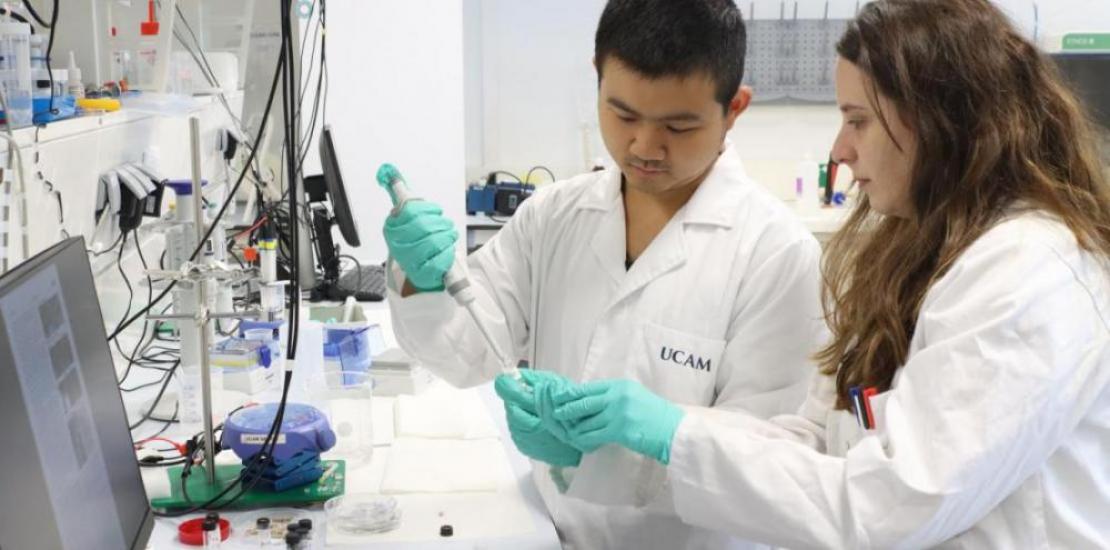UCAM SENS creates a sensor that monitors patients' lactate levels
This non-invasive device measures lactate levels in real time and will help healthcare professionals to monitor anaesthesia or sepsis processes.
Researchers Águeda Molinero and Qianyu Wang, directed by professors María Cuartero and Gastón Crespo (co-directors of the UCAM SENS Sensor Chemistry Unit) have published a scientific article in the ACS Sensors journal, focusing on the development of a new sensor capable of measuring the levels of lactate, a compound produced by the body when there is not enough oxygen supply. This sensor will help to monitor anaesthesia processes and the patient's condition in diseases such as sepsis.
Lactate is a compound generated by the body when there is not enough oxygen.
Following their first model for measuring lactate in athletes through sweat, researchers have transferred this same chemical process to a microneedle patch system to measure lactate levels in interstitial fluid. The use of these painless sensor avoids the need to draw blood, a procedure that is uncomfortable for the patient and can have associated clinical complications.
After extensive in vitro and ex vivo research in animal tissues, it has been proven that this sensor is able to measure lactate in interstitial fluid accurately, since the values obtained using this sensor showed good correlation with the values obtained in blood with traditional blood tests. Although in this work the researchers have focused on clinical applications, such as the anaesthesia procedure, this technology has a very broad range of application.
‘Continuous lactate monitoring is very helpful in the clinical setting for the early identification of complications, but also to know the prognosis of patients with different pathologies. Other fields such as sports physiology can also benefit from this technology to, for example, monitor athletes' training,’ says Águeda Molinero.
This new device will join the rest of the sensors developed at UCAM HiTech with the aim of creating a tool capable of monitoring several parameters simultaneously. The ultimate goal is to replace conventional blood tests and provide real-time monitoring of the patient's health.




